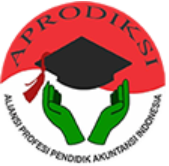EXAMINING PLAGIARISM IN ACCOUNTING ONLINE DISTANCE EDUCATION: DOES RELIGIOSITY MATTER?
DOI:
https://doi.org/10.21831/jpai.v22i1.70419Abstract
Online and distance education has an increasing interest among higher education, especially in Indonesia. Plagiarism is one of academic dishonesty cases that arise in the online and distance education. This study aimed at examining actual plagiarism among students in online distance education in accounting program by investigating the impact of intention to plagiarize as an independent variable and religiosity as a moderating variable. This study used quantitative method and the data was collected using a survey through 249 accounting online distance education students. The sampling technique used in this study was purposive random sampling. Moderated Regression Analysis was implemented to test the hypothesis of this study. This study found that intention to plagiarize has a positive impact on actual plagiarism, while religiosity has a negative impact on intention to plagiarize and actual plagiarism. For the moderating effect, it is found that religiosity moderates the influence of intention to plagiarize on actual plagiarism. This study implies that students should develop their religiosity and it is important for online distance higher education institutions, especially in accounting program, to improve the curriculum that can increase the religious value to the students to minimize plagiarism.
Keywords: religiosity, intention to plagiarize, plagiarism, online distance education
Downloads
Published
How to Cite
Issue
Section
License
Authors who publish with Jurnal Pendidikan Akuntansi Indonesia journal agree to the following terms:
- Authors retain copyright and grant the Jurnal Pendidikan Akuntansi Indonesia journal right of first publication with the work simultaneously licensed under Creative Commons Attribution License (CC BY 4.0) that allows others to share the work with an acknowledgment of the work's authorship and initial publication in this journal.
- Authors can enter into separate, additional contractual arrangements for the non-exclusive distribution of the published version of the work (e.g., post it to an institutional repository or edit it in a book), with an acknowledgment of its initial publication in this journal.
- Authors are permitted and encouraged to post their work online (e.g., in institutional repositories or on their website) before and during the submission process, as it can lead to productive exchanges, as well as earlier and greater citation of published work.






